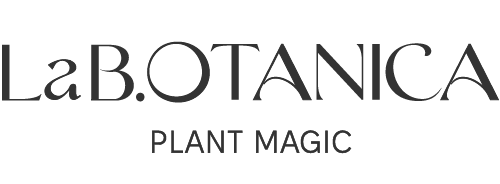
Are You Being Greenwashed by Beauty Brands? Unmasking Misleading Claims
Share
I Was Greenwashed Too—Here’s What I Learned
I’ve been there—seduced by those glossy labels and promises of “natural” beauty, only to discover later that I had been greenwashed. It’s not something I shy away from admitting because I know how easy it is to fall into that trap. It took me 25 years working as an organic cosmetic formulator and herbalist to fully grasp how these marketing tactics are designed to deceive. But here’s the good news: you don’t have to go through the same experience I did.
Let me share what I’ve learned about greenwashing , so you can cut through the noise and make empowered choices for yourself and your community. Knowledge is power, love. Together, we can spread this awareness and take back our beauty rituals—let’s dive in!
Difference Between Green Marketing and Greenwashing
There’s a fine line between green marketing and greenwashing . True green marketing is built on real environmental benefits, transparency, and sustainability, celebrating products that are recyclable, responsibly sourced, and free from toxic chemicals. This type of marketing advocates for sustainable products and ethical labor practices, ensuring a greener lifestyle.
On the other hand, greenwashing is merely a façade. It involves brands spending more time and money portraying an image of sustainability than actually implementing it. Recognizing the difference empowers us to support businesses genuinely committed to a better planet.

How to Spot Greenwashing in Beauty Products
We’ve all seen it—terms like “natural” , “clean” , “eco-friendly” , and “organic” plastered across beauty labels. But what do they really mean? Most of the time, these are empty buzzwords, designed to make products feel sustainable without actually being so. This is classic greenwashing—when companies exaggerate or fabricate eco-friendly claims to boost sales.
Look Beyond the Label
The first step in avoiding greenwashing is to look beyond these enticing terms. Just because a product claims to be "natural" doesn’t mean it's free of harmful chemicals. Similarly, "clean beauty" may still include synthetic ingredients, and "organic" doesn’t guarantee that the product is USDA Organic certified. Always check if the product is backed by third-party certifications like Non-GMO Project Verified , Leaping Bunny (for cruelty-free), or B Corporation status.
Second, remember there’s a big difference between flashy ‘clean beauty’ marketing and authentic sustainable beauty . True eco-conscious brands are transparent about every step, from ingredient sourcing to packaging.
Stay mindful, and trust your intuition. Let’s keep our beauty practices rooted in truth, not hype.

Greenwashing Examples in Beauty Brands
Here’s a common greenwashing trick: brands use "earthy" packaging or designs with leaves and flowers to make you feel like their product is sustainable, even if it’s filled with toxic chemicals. Another tactic is to highlight one organic or natural ingredient while the rest of the formula is packed with harmful additives. Don't fall for these surface-level aesthetics, beautiful. Instead, ask deeper questions about the product’s full ingredient list and production process.
Popular beauty brands have been called out for these practices. They often boast about eco-friendly initiatives, but upon closer inspection, their actions don’t live up to their claims. Stay vigilant, and always check the full story behind the product you're purchasing.

Effects of Greenwashing on Consumers and the Environment
Greenwashing doesn’t just erode our trust in brands; it also causes real harm to the planet. When we unknowingly support products that aren’t as green as they claim, we contribute to the very environmental damage we’re trying to prevent. Non-sustainable practices lead to more waste, pollution, and exploitation of resources.
Ultimately, greenwashing makes it harder for us to support true sustainability. But when we stay informed, we reclaim our power as conscious consumers. We get to choose brands that are genuinely committed to protecting the planet—and that’s how we make a real difference.

How to Avoid Greenwashing in Beauty
Avoiding greenwashing isn’t complicated. Here are some tips to stay ahead of the game:
- Look for trusted certifications like USDA Organic , Ecocert , Leaping Bunny , and Fair Trade . These seals ensure that the product is genuinely eco-friendly and cruelty-free.
- Do your research. Check out a brand’s sustainability practices beyond their marketing claims. Transparency is always backed by action.
- Read ingredient labels carefully. Don’t just rely on buzzwords—know what’s really going into your products.
- Choose brands that proudly share their environmental impact, like La.BOTANICA , where transparency is key.
Stay mindful, love, and let your beauty choices reflect the change you want to see.

Sustainable Beauty Brands You Can Trust
When it comes to sustainable beauty brands , it’s not about the hype—it’s about real action. Here are a few brands that are leading the charge:
• LaB.OTANICA: We live and breathe sustainability. From transparent ingredient sourcing to eco-friendly packaging, we stay true to our values.
• Rahua: Known for their sustainably sourced ingredients from the Amazon Rainforest, they walk the talk when it comes to preserving nature.

• Anima Mundi: A plant-based apothecary deeply committed to ethical sourcing, regenerative agriculture, and sustainability practices that honor ancestral wisdom.
• Davines: A holistic brand that uses organic and biodynamic ingredients with a strong focus on sustainability and ethical farming practices.
These brands don’t just make claims—they back them up with certifications and real practices that respect the earth.
Make Smarter, Conscious Beauty Choices
Greenwashing is everywhere, but with a little awareness, we can avoid it. Stay informed, do your research, and always choose brands that are genuinely committed to sustainability. Remember, every choice you make sends a message. Together, we can hold the beauty industry accountable and create a more transparent, eco-conscious world.
With love and wisdom,
La.BOTANICA 🌿
Become part of our vibrant botanical family by following us on Instagram, TikTok, and YouTube. Tune in as founder Meleesa Luna offers insightful tips and techniques for natural beauty and herbalism, empowering you to embrace and cherish your skin. Wishing you a summer season filled with warmth, joy, and radiant beauty!
